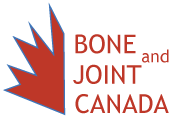Confusion Assessment Method Instrument
Delirium and dementia can be difficult to differentiate. Although both conditions are hallmarked by global disturbance in cognition, delirium is distinguished from dementia by:
- disruption of consciousness and attention
- clinical course
- development over a short period of time
- and, fluctuation through the course of the day (Costa et al., 1996).
Assessment tools adopted must capture these essential components. One such tool is the Confusion Assessment Method Instrument (CAM) and it enables clinicians through a quick five minute interview to accurately identify delirium (Inouye et al., 1998). There is both a long and short version of the tool.
Mini-Mental Status Exam
Structured mental status assessments quantify a baseline for screening an illness such as delirium, dementia and/or depression, but are not diagnostic in nature. There is currently no single mental status test that has demonstrated superiority (Costa et al., 1996). On reviewing the established reliability and validity of a tool/guideline, the clinician should choose the instrument best suited to their clinical practice and that will best augment their assessment.
The Mini-Mental Status Exam (MMSE) is the most widely used mental status assessment (Folstein, Folstein & McHugh, 1995). It assesses different cognitive domains: orientation, registration, attention and calculation, recall, language, and reading and following direction. Scores range from 0 to 30 points and scores can be used to monitor the progression of the disease – normal cognition 27 to 30, mild cognition 21 to 26, moderate cognition 11 to 20, and severe cognition 0 to 10. Lower scores on the MMSE do increase the likelihood of a subsequent decline (Patterson & Gass, 2001).
Montreal Cognitive Assessment MoCA©
The Montreal Cognitive Assessment (MoCA) is an alternative to the MMSE and was designed as a rapid screening instrument for mild cognitive dysfunction. It assesses different cognitive domains: attention and concentration, executive functions, memory, language, visuoconstructional skills, conceptual thinking, calculations, and orientation. Time to administer the MoCA is approximately 10 minutes. The total possible score is 30 points; a score of 26 or above is considered normal (Available at www.mocatest.org) (Nasreddine et al., 2005)
Cornell Scale for Depression
Depression screening in persons suspected of dementia should include information from the client and caregiver, as well as the health professionals observation of symptoms. The Cornell Scale for Depression requires an assessment interview by a clinician obtaining information from both the client and the informant (Alexapoulous et al. 1988).
Geriatric Depression Scale
Following the clinical interview and the identification of risk factors or client symptoms of depression, the health care professional may substantiate the potential for depression with the use of a questionnaire such as the Geriatric Depression (GDS). The GDS long or short form is valid and reliable for the screening and quantification of depression in mild-to-moderate dementia (Isella, Villa & Appollonio, 2001; Brink et al., 1982). The findings from Isella et al. (2001) support the use of the GDS-4 for the screening of depression and of the GDS-15 for its severity assessment.
